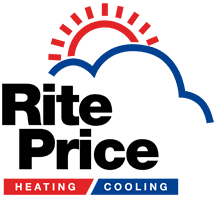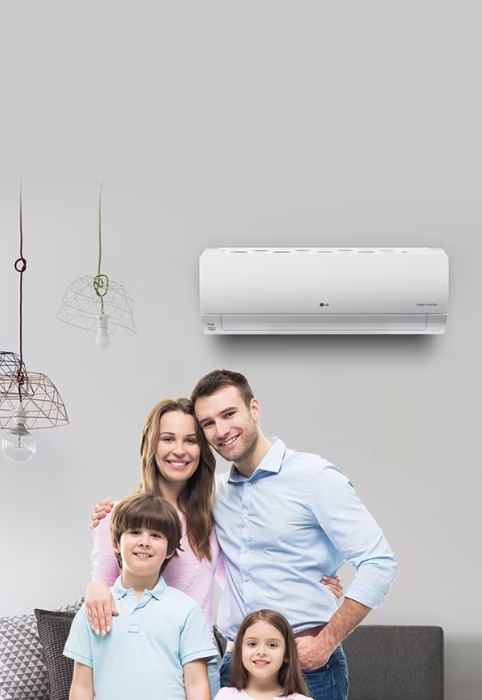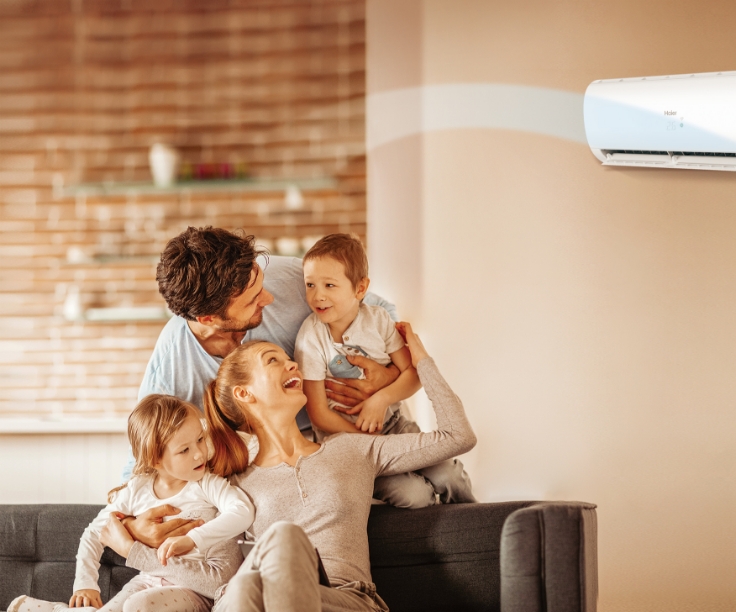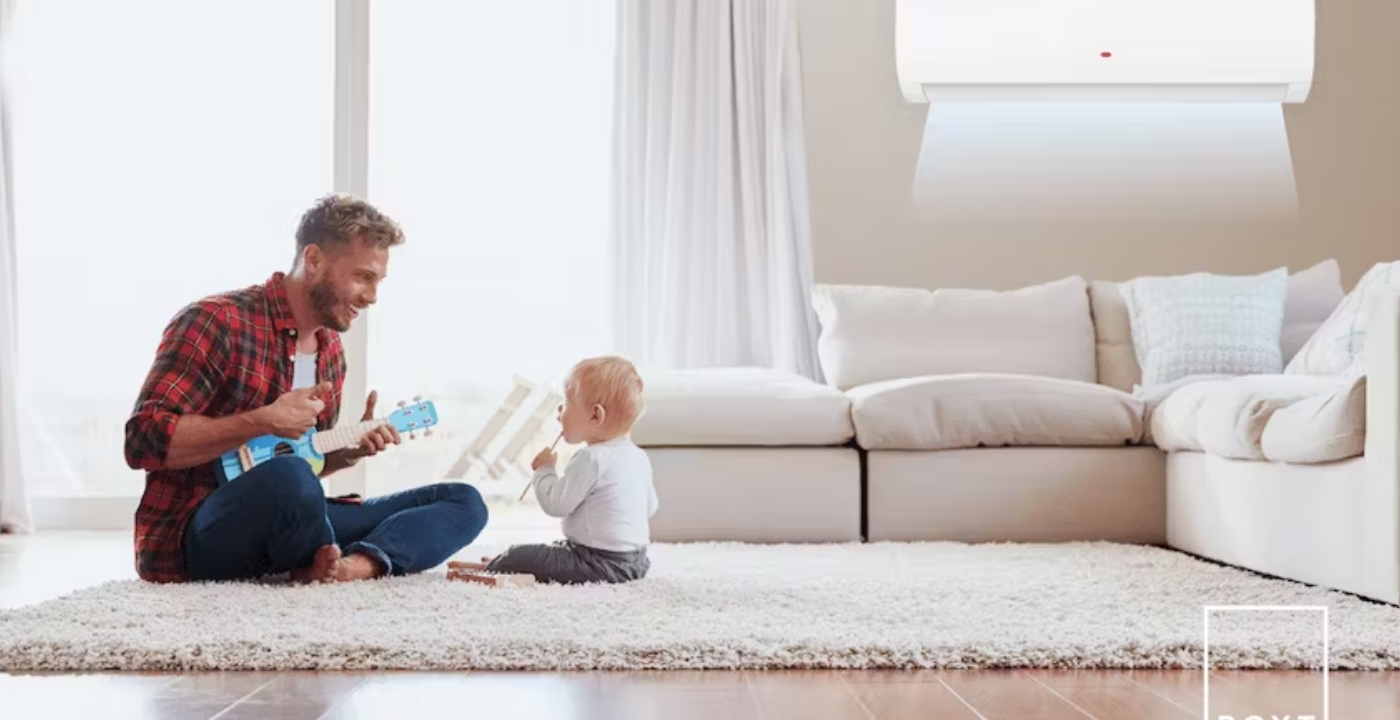Does ducted gas heating have a lower running cost vs. reverse cycle?
If you’re looking for the most cost-effective heating option for your home, two top contenders are gas heating and reverse cycle systems.
While both have their advantages, it’s essential to compare features and ducted gas heating cost to find the best value.
This ensures you choose the right system for comfort and efficiency in your Adelaide property.
Gas heating is as the name states run using natural gas as a fuel while reverse cycle heating is run using electricity. Both options have benefits and features, which will be explored in this article. If you want to find out which heating option offers the lowest running costs it’s important to analyse the features of both, calculate the running cost of each, explore the costs for the units and installation and a range of other factors before you make a decision.
Features of gas vs. reverse cycle
Reverse cycle heating is generated via a heat pump whereas gas heating is created by heating air using gas combustion. At the end of the day, both heating options do provide comfortable heat however they use different ways to create the heat for your property.
Gas heating offers a range of benefits to uses including low running costs, zoned capabilities, fast heating, energy efficiency, superior performance in colder weather and flexible zoning options, in the case of ducted gas heating systems. On the other hand, reverse cycle heating offers the same benefits, however, does have a higher running cost and the heating can be a little slower. As well as this, a heat pump in used to run the heating system as opposed to natural gas.
All in all, if you’re deciding between ducted gas and reverse cycle based on running costs, comparison is essential.
You should calculate the ducted gas heating cost and compare it with a reverse cycle system to understand long-term expenses.
This will give you a fair indication of the ongoing costs you can expect for your home heating needs.
Cost of running gas vs. reverse cycle
The calculations below help give a clearer picture of gas systems versus reverse cycle system running costs.
Keep in mind, electricity and gas tariffs vary depending on your state and energy provider’s rates.
These differences will impact the total cost of running your heating system across different regions.
For more on ducted reverse cycle systems, please visit our detailed product information page.
Tips for Gas Heating Cost Calculator
Find the unit’s gas consumption in megajoules per hour (MJ/h), usually listed on the unit label.
Check your gas bill or contact your provider to confirm the tariff rate per MJ.
Multiply the MJ/h consumption by your tariff rate to get the system’s hourly running cost.
To find daily cost, multiply hourly running cost by the average number of usage hours per day.
Use this total to compare the cost of gas heating with reverse cycle heating.
Tips for Reverse Cycle Cost Calculator
Identify the air conditioner’s input power in kilowatts (kW), listed on the unit or user manual.
Find your energy tariff per kWh on your electricity bill or contact your provider.
Multiply the kW input by the electricity tariff to calculate the hourly running cost.
Multiply the hourly cost by the number of hours used to estimate the system’s daily cost.
These simple formulas will help you determine which heating system is more affordable based on your usage and location.
Other Cost Factors to Consider
Installation costs, unit prices, and servicing fees all impact the long-term cost of your heating system.
Also consider additional parts or home modifications needed to install your preferred heating system effectively.
How to Improve Heating Efficiency
Heating and cooling can account for 40% of your household energy use, so smart energy habits make a difference.
Use these tips to reduce costs and improve heating efficiency in your home or office.
Top Tips to Improve Heating Performance
Use the sun’s warmth – Open blinds and remove shade to naturally heat your home during the day for free.
Close windows and blinds at night to keep warmth in and reduce overnight heating needs.
Zone control your home – Heat only the rooms you use and turn off heating in unused zones to save energy and costs.
Improve insulation – Adding insulation to ceilings, floors, and walls reduces heat loss and improves overall energy efficiency.
Homes without insulation can lose up to 60% of heat through poorly sealed ceilings and walls.
Draught-proof your space – Seal gaps around doors and windows with draught stoppers, tape, or weather sealing strips.
This prevents heat from escaping during winter and keeps cool air in during summer months.
How to choose the lowest cost heating for your needs
Whether you use ducted air conditioning or reverse cycle, it’s important to be aware of energy efficiency labels to compare the efficiency of a range of models. The labels will outline the rating for you at a glance, however, it is important to have a clear understanding of what this will mean for you as a consumer.
Electric appliances energy ratings
Electric appliances have an energy rating label in Australian that will outline the energy performance for the system. While higher-rated models may be more expensive, the higher the star, the better when it comes to buying the best system for your needs.
Energy rating labels are mandatory for appliances including televisions, computer monitors, air conditioners, clothes dryers, washing machines, freezers and more, and it is important to be aware of the energy rating stars and the super efficiency star ratings to get a detailed understanding of how the system’s kW output suits your needs and budget.
The sticker will provide a guide to energy consumption per year and will allow you to calculate the total approximate price ahead of making a decision.
Gas energy ratings
While in the gas industry the energy rating is not mandatory like electric appliances, the Gas Energy Rating Label does exist and is available for comparing items such as a gas heater.
The system is voluntary, so it is important to note that while you will be able to get comparable rates of energy consumption, not all system will come with a star rating for gas systems.
Things to consider when buying your air conditioning system
As well as calculating the energy usage based on the approximate consumption you should be aware of the following factors below purchasing your air conditioning system.
– Local climate – where you live plays a part in how long the heating system will take to warm up and work for you. Gas starts basically instantly while reverse cycle heating may take longer the colder it is outside.
– Room and house size – your floor plan and the square metres your system needs to heat will play a part in the heating of your home.
– Ceiling height of your property – the ceiling height should be taken into account for your heating and cooling – if you have high ceilings, you will need to adequately heat your property and take this measurement into consideration.
– Area of windows and the insulation in your property – this should be taken into consideration when heating your home and the area you need to will be affected by the amount of insulation and glass in your property.
Whatever decision you make when it comes to gas heating or reverse cycle, it’s important to be aware that both have many benefits and features and you should make your decision based on your property specifically. Engage the services of a qualified heating expert to visit your property and provide a detailed quote for services to get a better understanding of what is required and the best options for your individual needs.
Rite Price Heating & Cooling offer affordable heating options for a wide range of systems for customers across Adelaide. Call the team to arrange a free onsite quote to discuss your heating requirements today.









